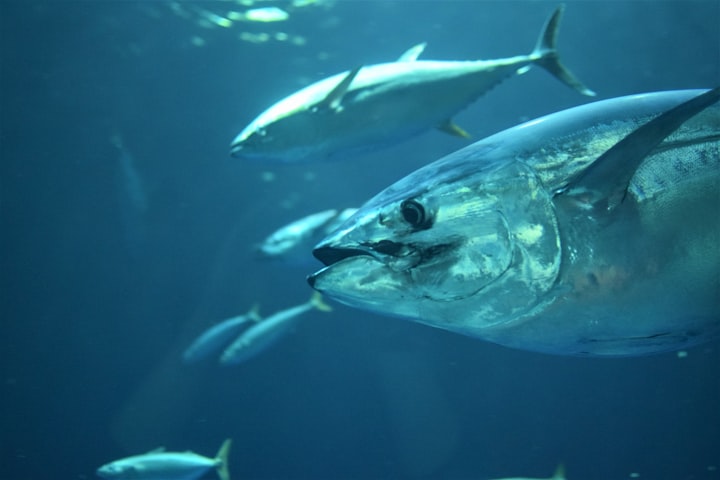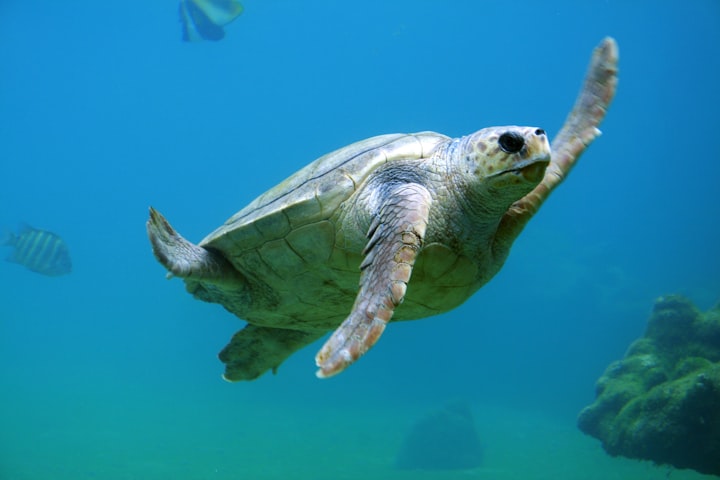Is Eating Tuna worth the consequences?
Or should we continue overexploiting them?
Is eating tuna worth it? I say no, but I know others who say different. So here are some of the reasons I don't eat tuna and why I think you shouldn't eat tuna either. You can thank me later, or you can cast them aside. Either way, it's up to you.
So here are six reasons why I think you should re-considering adding tuna to your shopping trolley the next time you find yourself in the shop.
1) Resources used to catch Tuna
Tuna comes in all shapes and sizes; Bluefin tuna, which can reach 15 feet in length, can weigh more than 1,500 pounds. Even some smaller tuna species, such as albacore and Yellowfin (common in canned tuna), can grow to 6.5 feet long and weigh hundreds of pounds.
Tuna can swim more than 100 miles a day. With observed speeds of over 40 miles per hour. With such fast fish, the resources used to get what was once a swimming feeling organism into the final product, a can of smelly mush, costs a lot.

2) The Sodium levels in that tin
A single tin of tuna can contain nearly 600mg of sodium. Too much sodium in the human body can negatively affect health, by increasing the risk of high blood pressure or hypertension. High levels of sodium also increase the risk of strokes, kidney and heart disease. So maybe curb the tins and use alternatives.

3) The millions of Dolphins killed by Tuna fishing
Since the 1950's it’s been reported that 6 million dolphins have been caught in the efforts to catch tuna. That’s 6 million of those, cute, innocent, friendly mammals we all love that have accidentally been killed.

4) Mans best friends vs My best friend
Dr Theresa Burt de Perera, an Oxford University scientist, recently published research showing that fish learn faster than dogs. As well as Calum Brown, a biologist from the University of Edinburgh, suggests in areas such as memory, the cognitive powers of fish match or exceed those of 'higher' vertebrates, including non-human primates.
5) Tuna population decrease
Many species of fish, not just tuna, are increasingly placed at risk due to plastic pollution and its effects on marine ecosystems. So imagine that risk, coupled with disastrous overfishing. Two wrongs, both caused by humans, do not make a right.
In the last 80 years, Bluefin tuna populations have decreased by 97%, Yellowfin tuna populations have decreased by 74%, and Albacore tuna populations have decreased by 75%.
6) Human food security
Tuna is critical to human security. Many people in developing countries rely on it as a primary source of food or income. Suppose you have the privilege of the internet and, therefore, the ability to read this post. In that case, you likely don't depend on tuna as your primary food or income source to survive; you can put something else in your shopping basket.

About the Creator
Bradley Knight
Grown on the British Isles, exploring beyond.
Marine Ecologist by trade, Scientific Illustrator and Communicator by hobby.







Comments
There are no comments for this story
Be the first to respond and start the conversation.